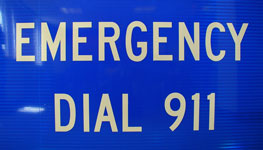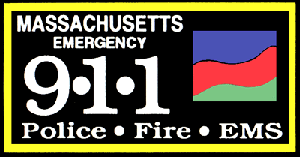What you should know about dialing 911

Dial 9-1-1 for an emergency only!
For non emergency services call:
- 508-966-1212 for the Police Department
- 508-966-1112 for the Fire Department
Non-emergency incidents include crimes that are not in progress or past situations, any business inquiry calls for Police, Fire or Medical services
An emergency is:
- Any serious medical problem (chest pain, difficulty breathing, seizure, bleeding, etc.)
- Any type of fire (business, residence or vehicle)
- Any life threatening situation (fights, person with weapons, etc.)
- Any crime in progress (whether or not a life is threatened)
- Any alarm activation
- Any incident that you feel may be an emergency
Do not program '9-1-1' into your telephone's speed dial
You won't forget the number, and programming the number invites accidental dialing.
If you dialed 9-1-1 by accident, DO NOT hang up the telephone!
Instead, stay on the phone and explain to the dispatcher that you dialed by mistake and that you do not have an emergency. If you hang up, for your safety, police officers may be dispatched to the caller's address unless it is otherwise determined not to be an emergency. This will needlessly take resources away from genuine emergencies. The Public Safety call-taker must confirm the information on their 9-1-1 screen for accuracy in case you ever have a real emergency. There is no charge or obligation incurred for this misdialed call.
When the dispatcher answers, briefly describe the type of incident you are reporting and exactly where the emergency services are needed
For example, "I'm reporting a vehicle fire at…," or "I am reporting a motor vehicle crash that just occurred at …." Then stay on the line with the dispatcher, do not hang up until the dispatcher tells you. In some cases, the dispatcher will keep you on the line while the emergency units are responding to ask additional questions or to obtain ongoing information.
Let the call-taker ask you questions
Dispatchers have been trained to ask very specific questions that will help prioritize the incident, locate it and determine an appropriate response.
Your answers should be brief and responsive. Remain calm and speak clearly. Be specific. What is happening and where, If you are not in a position to give full answers to the call-taker stay on the phone and the dispatcher will ask you questions that can be answered with "yes" or "no."



